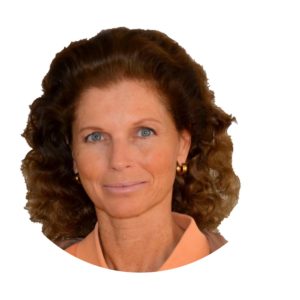Health insurance with confirmation of membership for qualified employees from abroad
Find health insurance quickly and become a member – especially for the visa process
Foreign nationals working in Germany for a domestic employer, and not through assignment, are generally mandatorily insured in the statutory health insurance (“Gesetzliche Krankenversicherung, GKV”), unless they earn above the contribution assessment ceiling, in which case they can opt for voluntary insurance. A membership certificate from a health insurance fund plays an important role in applying for a visa and residence permit.
Those earning above the contribution assessment ceiling may also consider private health insurance. However, for qualified employees and skilled workers, starting with statutory health insurance is usually more advantageous. If one opts for statutory health insurance, like Techniker Krankenkasse (TK) or Barmer, they are voluntarily insured. Everyone else is mandatorily insured. There is no special health insurance for foreigners in Germany. Expats sent to Germany cannot usually insure themselves in the “GKV”. They need private health insurance with a minimum coverage of 30,000 euros.
Foreigners, whether from the EU or third countries, apply for membership in a “Gesetzliche Krankenkasse” fund before starting work, so that the employer can correctly pay social security contributions from the first day of work. Confirmation of membership in a health insurance is indispensable for non-EU foreigners when visiting the embassy for a visa and the foreigner’s office for applying for a residence permit. Proof of health insurance coverage must be provided at this appointment at the latest. The health insurance companies issue the relevant documents. Membership in a health insurance fund automatically generates a social security number for the member.
In almost all cases, embassies require proof of German health insurance for foreigners living in Germany as a standard procedure for visa applications. According to § 2 AufenthG (Residence Act, “Aufenthaltsgesetz”), the foreigner must prove – as part of the so-called means of subsistence – that they have sufficient health coverage. Such proofs are difficult to obtain from a private health insurance before entry and registration in Germany, but easy from the “GKV”.
In addition to the health insurance fund, the foreign employee must inform the employer of their tax identification number (Tax-ID) so that the employer can calculate the wages according to the stored tax class and correctly pay social security contributions. The employee automatically receives this ID by post at their registered address after registering with the residents’ registration office responsible for their place of residence. The Tax-ID, which one keeps for life, must be communicated to the employer immediately upon receipt.
 How can I insure family members free of charge?
How can I insure family members free of charge?
Employees coming from abroad with an income beyond the contribution assessment ceiling are avidly courted by private health insurance companies when they wish to insure themselves in Germany. It is not fundamentally advisable to decline their offers, but it’s important to note that family members without their own income are not covered free of charge as they are in the statutory health insurance (“Gesetzliche Krankenversicherung, GKV” family insurance (according to § 10 SGB V), and the future development of contributions and the associated risks increase with age.
Returning to the statutory health insurance is practically only possible with a decrease in income and is virtually impossible from the age of 55. Therefore, private supplementary insurance is usually the appropriate means to obtain coverage beyond the scope of the “GKV”.
When applying for a residence permit as a specialist or with the EU Blue Card at the health insurance fund of their choice, if one wishes to insure family members, they must include marriage and birth certificates as well as additional application documents for family insurance. Insured family members must not have their own income over 505.00 euros (as of 2024). All persons insured in this way receive their own health card (Gesundheitskarte”).
Anders Consulting can register you with any health insurance fund upon request. Currently, we specifically recommend the offers from Barmer and Techniker Krankenkasse, which provide special services for skilled workers from abroad. Here, you can receive an insurance confirmation within 24 hours (Barmer).
Your health insurance glossary
Basic Tariff: Private health insurance companies must offer a basic tariff that matches the benefits of the statutory health insurance (“Gesetzliche Krankenversicherung, GKV”). This provides insured individuals who cannot join the “GKV” an insurance alternative equivalent to the statutory health insurance tariff.
Contribution Assessment Ceiling: The contribution assessment ceiling determines the amount up to which income is used for contributions to statutory health and long-term care insurance. It is set at 62,100.00 euros. Anyone earning even more, namely 69,300.00 euros (2024), can switch to private health insurance (PKV) or remain in the statutory health insurance scheme on a voluntary basis.
Binding Period: Insured individuals must commit to a health insurance fund for 12 months. Afterward, they can cancel and switch with a notice period of 2 months to the end of the month.
Substitute Health Insurance Funds (“Ersatzkassen”): A category within the statutory health insurance, where members also have a choice, e.g., Barmer, HEK, HKK, Hamburg Münchener Ersatzkasse, HZK, KEH, KKH, GEK, and Techniker Krankenkasse TK.
Fee Schedule: Doctors approved by the Association of Statutory Health Insurance Physicians must adhere to a uniform fee schedule. Private doctors can agree on different fees. The fee schedule indicates what one receives from the fund according to the principle of reimbursement if one wants to be a self-payer.
Health Fund (“Gesundheitsfonds”): All “GKV” income is collected in the health fund. The health insurance funds receive money from the fund to provide services. If a fund needs more money, it has to charge an additional contribution, which makes the fund less attractive for insured persons. In 2024, the average supplementary contribution will be 1.7%.
SHI: Statutory health insurance includes General Local Health Insurance Funds, Company and Guild Health Insurance Funds, Agricultural Funds, the German Pension Insurance “Knappschaft-Bahn-See”, and Substitute Health Insurance Funds.
Primary Care Physician: In primary care-centered services, insured individuals always consult their primary care physician first to coordinate treatment and, if necessary, be referred to specialists or hospitals.
Treatment and Cost Plan: In dental care, to receive benefits from the “GKV”, one must obtain a cost estimate. In this, the treating dentist details the services and costs involved.
Individual Health Services (“Individuelle Gesundheitsleistungen, IGeL”): Outside the benefits of the “GKV” or the individual optional tariff, doctors offer so-called individual health services (IGeL) that the patient must pay for out of pocket. The doctor must indicate that additional costs will incur. Typical IGeL services include professional dental cleaning or magnetic field therapy.
Association of Statutory Health Insurance Physicians (“Kassenärztliche Vereinigung, KV”): The “KV” is divided by federal states and grants doctors the license to provide outpatient care to SHI patients. It represents the interests of panel doctors and negotiates treatment fees.
Principle of Reimbursement: Normally, “GKV” insureds present their health card, and the doctor and KV settle the costs among themselves. However, insureds can also opt for reimbursement: then, they must pre-finance the services and settle up with the fund later. Insureds with private supplementary insurance often choose this alternative. This contrasts with the principle of benefits in kind, where the patient is unaware of the billing process in the background. However, the principle of cost-effectiveness always remains in reimbursement, i.e., the fund does not pay more than it would under the principle of benefits in kind.
Sick Pay: Eligible members receive 70% of the lost income up to the contribution assessment ceiling as a prescribed standard benefit in the event of incapacity for work. However, sick pay never exceeds 90% of the lost net income. Contributions to the statutory pension, unemployment, and long-term care insurance have to be paid from the sick pay.
Health Insurance Card: Mostly called a health card (“Gesundheitskarte”), it proves “GKV” insurance coverage and replaced the health insurance certificate in the 90s. It contains personal data and facilitates billing between doctors and funds. Health insurance funds have already launched or are preparing to launch the digital patient record as an additional element.
PHI (“Private Krankenversicherung, PKV”): Private health insurance is available to freelancers, self-employed individuals, civil servants, and employees earning above the contribution assessment ceiling. In “PKV”, contributions are based solely on the scope of benefits, the insured’s health status, and age. Income does not play a role in calculating contributions.
Statutory Benefits: Some funds offer more than the statutory framework of the “GKV” prescribes. This is anchored in the fund’s statutes, e.g., outpatient preventive cures, higher subsidies for rehabilitation, or funding for alternative healing methods. Insured individuals should carefully check whether and which statutory benefits a fund offers without an additional contribution.
Compulsory Insurance: Every citizen or resident in Germany must have health insurance. This also applies to foreigners registered in Germany, i.e., also skilled workers, highly qualified individuals, and self-employed persons. There is an income threshold above which one must acquire their own membership in a fund, e.g., not being insured free of charge and without contributions as a family member.
Optional Tariffs: Many funds offer the option to agree on a deductible to save on contributions. They also offer additional benefits like dental prostheses or special hospital treatments.
Principle of Economic Efficiency: The compulsory health insuranceonly covers services that are sufficient, appropriate, and do not exceed the necessary. Nevertheless, the benefits for compulsory insurance are good in an international comparison. Many foreigners are therefore completely satisfied with the compulsory health insurance.
You’ll be amazed: health insurance is so quick and easy
“We make the issue of health insurance for foreign professionals, nursing staff, and highly qualified employees completely straightforward for both employers and employees. We can practically obtain confirmation of membership in the statutory health insurance (SHI), e.g., with TK or Barmer, overnight before the embassy appointment for visa application, so that it can be presented there to speed up the process.
From our perspective, the topics of residence permits and social security are relatively transparent and, even when using a relocation service, not at all expensive:
Applying for and obtaining a work permit + preparing for the embassy appointment + applying for a long-term residence permit + registration at the residents’ registration office and with statutory health insurance fund cost a childless married couple from EU countries pays together 1,335.00 euros (2024) plus value-added tax (19% Umsatzsteuer”). Can you imagine how much running around and stress this saves you or what a lawyer would cost?
Of course, this is also money for an employer, but compared to the costs of recruitment, it is hardly significant. Often, just the flight tickets for entry are more expensive. And what is it worth if both employer and employee can ignore the bureaucratic hassles and the employee just eventually has their first day? And do you really want to familiarize yourself with the Skilled Immigration Act (FEG 2023) that has been coming into effect in stages since November 2023 until June 2024?
We work with many health insurance partners and are therefore open to all sides. We work particularly flexibly with Barmer and Techniker Krankenkasse, thus maximizing benefits for our clients. Of course, the professionals we support find English-speaking assistance with both partners should there ever be a need.
Foreign professionals also receive information from us about the German social security system and how things work with doctors and hospitals here. So, we not only take care of the insurance but also ensure the best possible start in terms of health. You’ve got a Friend in Germany!”
Photos: Anders Consulting Global Relocation Service using AdobeStock_49233923, AdobeStock_44672210. Anders Consulting does not provide legal services.


 How can I insure family members free of charge?
How can I insure family members free of charge?